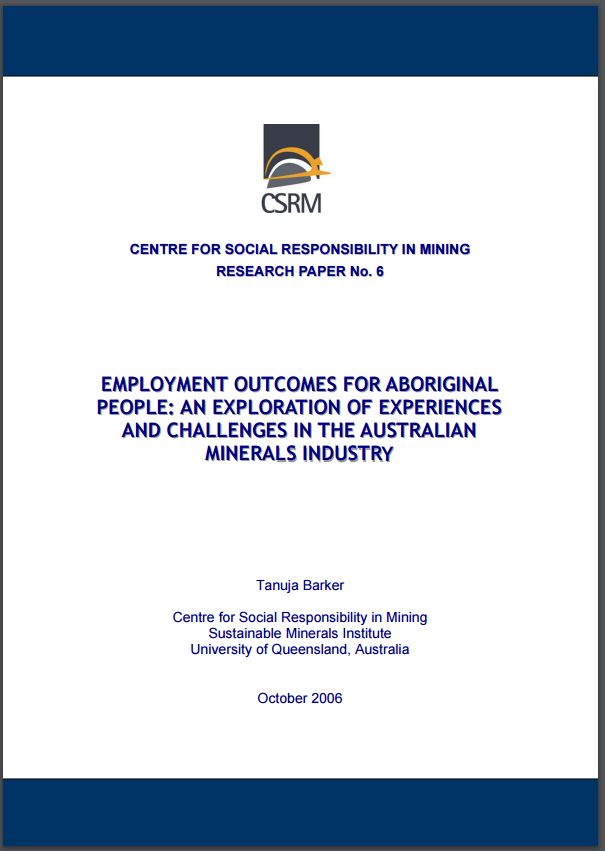Employment outcomes for Aboriginal people: an exploration of experiences and challenges in the Australian minerals industry
There has been a resurgence of interest in Indigenous employment within the Australian minerals industry. This has mainly been driven by legal developments in Indigenous relations, coupled with increased recognition by Governments and leading companies of the need to address persistent poor socio-economic conditions in Aboriginal communities. Particularly in remote areas, the mining industry is often seen as one of the few available avenues to deliver economic and other improvements to Indigenous people living in those areas. Although the overall rate of Indigenous employment in the mining industry remains relatively low, there are several leading mining operations where Indigenous employees now constitute a significant proportion of the workforce. This trend towards increasing Indigenous involvement in the industry raises important questions about the short and long term consequences of employment, both for the workers themselves and the communities they come from. The prevailing assumption is that Indigenous people will benefit from increased employment in the mining industry. However, to date little has been done to measure the benefits of mining employment for individuals or communities, or to identify and analyse possible negative impacts. A sustained research effort in this area is needed to inform the design of Indigenous employment programs to help maximise the benefits and minimise the adverse impacts for individuals, families and communities.
Publisher: CSRM
Region: Australia
Type: Report
CITATION
This paper is largely a result of relevant work conducted at the University of Queensland

